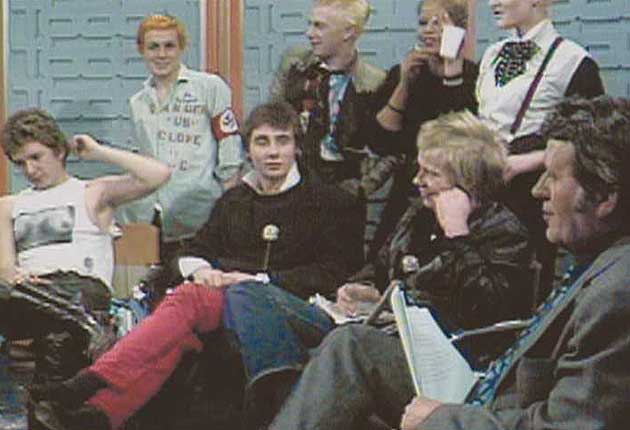The story of pop music
It's great for families, but an exhibition about British pop music might disappoint more hardcore fans, says Chris Mugan

Your support helps us to tell the story
From reproductive rights to climate change to Big Tech, The Independent is on the ground when the story is developing. Whether it's investigating the financials of Elon Musk's pro-Trump PAC or producing our latest documentary, 'The A Word', which shines a light on the American women fighting for reproductive rights, we know how important it is to parse out the facts from the messaging.
At such a critical moment in US history, we need reporters on the ground. Your donation allows us to keep sending journalists to speak to both sides of the story.
The Independent is trusted by Americans across the entire political spectrum. And unlike many other quality news outlets, we choose not to lock Americans out of our reporting and analysis with paywalls. We believe quality journalism should be available to everyone, paid for by those who can afford it.
Your support makes all the difference.From heavy industry in the north, to Dickens in the south, Britain has done a fantastic job of repackaging its heritage. One aspect, though, has remained patchy – our continuously buoyant export market in pop and rock.
For years, only Liverpool made a fist of this, reminding people it was home to The Beatles with its shrine at the Cavern Club. Then came the disastrous, lottery-funded National Centre for Popular Music in Sheffield. It opened in March 1999 and closed in July the next year. Not because of its location – Bradford's National Media Museum continues to do brisk business – but because it was overambitious and overegged.
Now promoter Harvey Goldsmith has waded in with a permanent exhibition of UK pop history. As it happens, his British Music Experience comes on the site of another government-sponsored white elephant – the Millennium Dome, now bucking the recession as the O2 Arena. Since it opened in 2007, the venue has already broken records and hosted such memorable events as Led Zeppelin, Prince's marathon stint and plans to host Michael Jackson's comeback, announced last week.
Surrounding it, though, is the dull, windswept expanse of North Greenwich and an antiseptic complex of bars and restaurants. Hardly the place for a celebration of the noise and vitality of our pop culture. Nor does it compare with the US Rock and Roll Hall of Fame on the shore of Lake Erie, which comfortably houses the Trabants from U2's Zoo TV tour.
This compact, circular equivalent contains a series of rooms radiating like spokes on a wheel that tell the narrative of pop's birth in traditional jazz and skiffle, through its maturation to today's multitude of genres. Some of the interactive displays are clunky, but you get a sense of their curators' passion and desire not to pull punches wherever possible.
In the hub, a whistle-stop tour through music in the media shows footage of the iconic Sex Pistols' interview with Bill Grundy. But what of the calypso star Lord Kitchener singing to a reporter "London is the Place For Me"? His style was sidelined by Jamaica's more muscular reggae and ska, yet he provides a glimpse of Fifties immigrants' optimism.
This is a family-friendly experience, so drug use and sexuality are understandably glossed over. LSD and marijuana, key influences in Sixties music, are primly referred to as an "hallucinatory state", nor is there any admission that Rock Against Racism formed in the Seventies to combat primitive attitudes within and beyond the music scene. It is, though, comforting to note Tom Robinson's "Glad To Be Gay" anthem warrants a brief mention.
BME's approach suggests a constant evolution of music rather than a response to the cultural clashes that erupted throughout pop's history, mods vs rockers, teddies vs punks and skins "bovvering" everyone else. Perceived threats against morality and the Establishment also get short shrift. While Frankie Goes To Hollywood's relatively coy "Relax" gets a mention, there is nothing on how the Sex Pistols' "God Save The Queen" could have reached No 1 during the Silver Jubilee. Nor is there a sense that music can go into creative recession as in the mid-Eighties.
Instead the BME seeks to enthuse new generations of pop fans distracted by social networking, games consoles and Skins. Most compelling is Gibson's Interactive Studio, where you can play some expensive kit without disapproving looks from store managers. Most of the tutorials veer towards the safe, but it proves that the best way to immerse yourself in pop remains to get involved.
The British Music Experience is at the O2 Arena, London SE10 (0844 847 2477)
Join our commenting forum
Join thought-provoking conversations, follow other Independent readers and see their replies
Comments